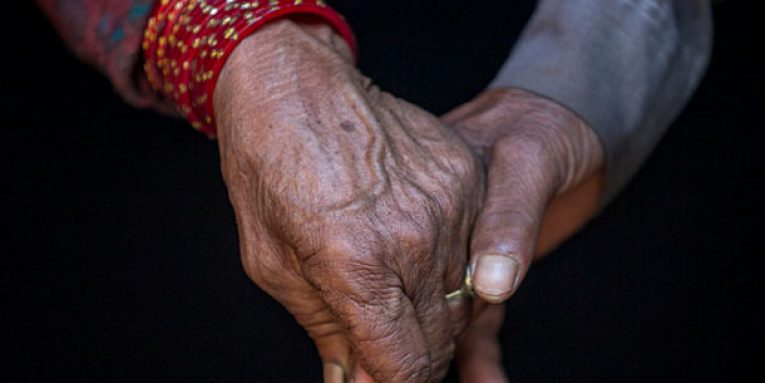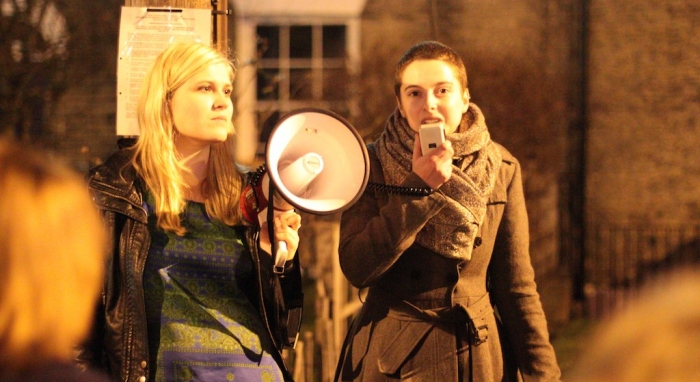On Thursday 25 May 2017, ultra-conservative activists and policy-makers will come together in Budapest, Hungary for the 11th international World Congress of Families (WCF) under the title “Building Family-Friendly Nations: Making Families Great Again”.
As the biggest annual meeting of the right, the organizers have stated their hopes that this year’s WCF will “help launch a new global pro-family alliance of countries dedicated to defending marriage, the family and the sanctity of human life.”
Throughout the four days (25-28 May) delegates from the clergy, civil society, the business world, and politics will build relationships and learn from each other’s tactics for achieving regressive change – all under the auspices of the Prime Minister of Hungary.
While extremely troubling, the WCF is not an exceptional event. In fact, it can be seen as an archetypal example of much broader trends. A new report released this week, documents the rise in numbers, increased coordination, and increasingly strategic approaches of anti-rights actors operating in international spaces, and the significant impact they have made so far.
Behind the Research
In 2016 a group of organizations and activists, including AWID, launched a collaborative project called the Observatory on the Universality of Rights – OURs, for short.
The project stemmed in part from a strategy meeting on religious fundamentalisms held by AWID in 2013, during which a number of participants raised concerns about the effects of ultra-conservative groups on our human rights, and shared the work they were doing already to resist.
A clear trend was visible: These anti-rights actors, both state and non-state, were working more concertedly than ever to undermine a core concept of human rights: their universality.
Universality is a cornerstone of international human rights law. It encapsulates that we are all equally entitled to our human rights simply by being human – whatever our nationality, place of residence, gender, race, ethnicity, religion, language, sexuality, or any other status.
The OURs initiative decided to undertake a comprehensive study of the forces working to undermine universality, the impact they have had so far, and ultimately what this might mean for people’s lives.

© HazteOir.org | Flickr | WCF 2012
What did we find?
1. A large and complex anti-rights lobby
The research revealed an unprecedented level of engagement by anti-rights actors in international human rights spaces today. Following an initial foray in the UN arena during the Beijing and Cairo conferences in the 1990s, these ultra-conservative actors have been increasingly targeting the international policy arena.
One of the most notable trends found is the tendency towards strategic alliances. The report maps a complex and evolving anti-rights lobby at the UN, with older forms of affiliation, based on religion or institution, giving way to pragmatic organizing according to shared goals.
2. An evolving repertoire of strategies
A striking finding of the research is that ultra-conservative actors – despite all their rigidity when it comes to worldview – very much move with the times when it comes to strategy.
Where anti-rights actors may have previously been explicit in their religious or “moral” motivations, they now often appeal to supposedly intellectual or “social science” arguments. What is more, when certain human rights bodies prove difficult to infiltrate or influence, anti-rights groups find new points of entry.
Across all the strategies of these actors, some key trends are visible:
- Learning from the organizing strategies of feminists and other progressives.
- Adapting successful national-level tactics for the international sphere.
- Moving from an emphasis on symbolic protest against the human rights system, to becoming subversive system “insiders”.
3. Expert “double-speak”
The report paints a picture of the myriad creative discourses anti-rights actors use to undermine the universality of rights. In several cases, these actors take a legitimate concern or struggle and appropriate it for their agenda.
A good example is the way that anti-imperialist discourse is used by both ultra-conservative states and civil society organizations. This narrative revolves around the idea that national governments are being unjustly targeted by UN bodies, or by other states acting through the UN.
Of course, there is much to be said about the instances in which national governments are bullied by other states and by international institutions.
However, we documented the ways this discourse is co-opted to cast a powerful institution – the state – as the victim, in order to justify national exceptions to universal human rights standards. Tellingly, many of those who employ this discourse are in fact global North-based organizations.
Another striking finding is the trend towards co-opting the very language of human rights, women’s rights, and even the notion of “universal” itself.
To give just one example, conservative players have attempted to construct a new category of “parental rights”, which has no support in existing human rights standards.
While sounding something like a genuine area of human rights, this dangerous framework in fact works to twist the rights protections children have, as articulated in the Convention on the Rights of the Child, to support the rights of parents to control their children and limit their rights and autonomy.
4. The impact on our rights is grave… but there is hope
Anti-rights actors have already had a substantive impact on our human rights framework, especially rights related to gender and sexuality.
Take the Commission on the Status of Women (CSW), for example. Precisely when addressing women’s human rights is of urgent importance, the very space dedicated to this has become extremely harder and harder to make advances in. Our energy is taken up trying to hold the ground against conservative backlash – sometimes even on agreements made 20 years ago!
At the Human Rights Council (HRC), in between progressive gains, we have increasingly witnessed ultra-conservative states aggressively negotiating out positive language and introducing hostile amendments to resolutions.
In a whole range of spaces beyond these two examples, the presence of regressive actors is being keenly felt. However, we should not see this as a done deal.
First of all, we should remember that these advances have, at least in part, been a response to the gains of feminism and other progressive movements – a backlash that indicates the extent of our power.
We can also take courage from the many times when anti-rights actors’ attempts were unsuccessful due to the strong efforts of progressive activists.
From the limited amount of regressive language conservative actors managed to insert into Agenda 2030, to the repeated fruitless attempts to block the new mandate of the Independent Expert on sexual orientation and gender identity, to the strong provisions on sexual and reproductive rights and health in the 2016 HRC resolution on discrimination against women – these regressive agendas can and will be thwarted.
Understanding the attacks, to strengthen our rights
This research was founded on the belief that to counter the advance of our “opponents” in human rights spaces we must have an intimate knowledge of the ways they operate. As the first report to come out of OURs, we have focussed most of our attention on the threat itself.
One might wonder if this detailed look at anti-rights efforts risks over-emphasis on the negative aspects of the picture. Our hope is that this first report will act as a strong foundation for building awareness and action in this area. As we go on, the plan is to build upon these findings, including by documenting the important gains feminists and other progressive actors have made in recent years.
There are many progressive activists doing remarkable and sustained work on our rights related to gender and sexuality – we are many, and we are strong. Our hope for this research is that it will provide the knowledge to make our collective struggle more strategic, more proactive, and ultimately more effective.
Let’s work together to defend the universality of rights!
Add your voice and apply to become an institutional member. Get in touch to learn more



